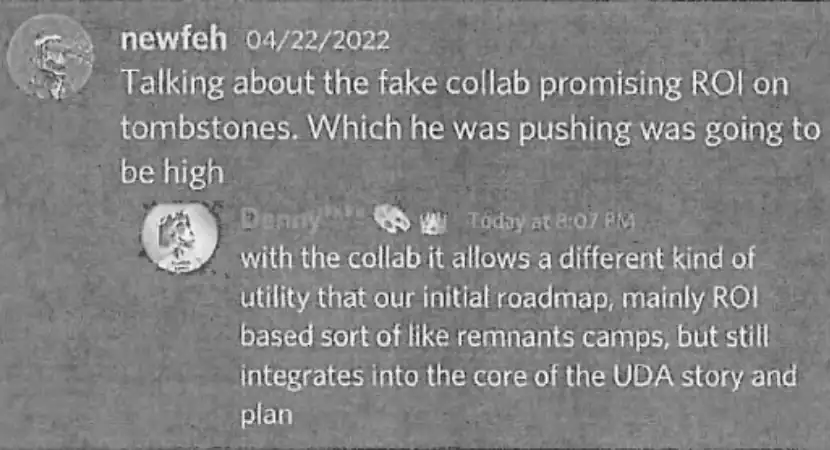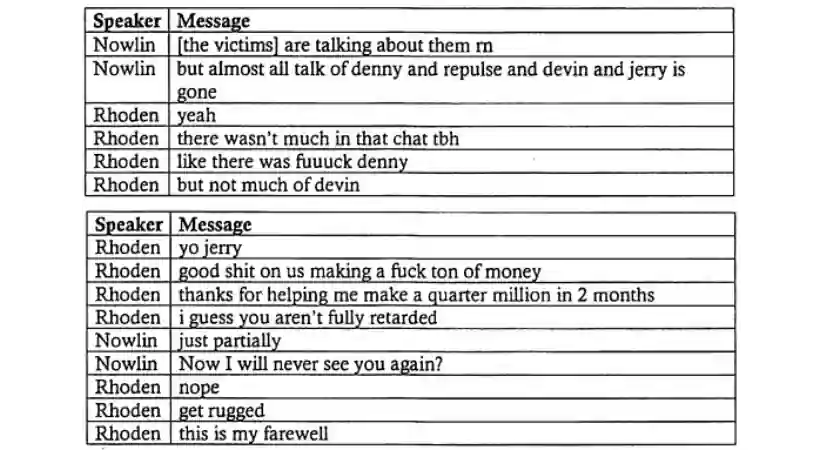Several years ago, NFTs (non-fungible tokens) were a boom that a good deal of people were interested in (some were beyond ecstatic). It was supposed to be the next big thing in crypto and, to a point, finance. Celebrities from various industries were a part of it, either buying or creating it for their products. Actors, comedians, musicians - you name it, they were in on the hype. But when you think about what an NFT is, the story gets even better. To put it simply, NFTs are unique digital assets stored on a blockchain. Unlike cryptocurrencies such as Bitcoin, NFTs can’t be traded equally for one another, hence the name non-fungible. They all have an identifier of some sort, a unique metadata, much like a Social Security number. Due to this nature, they are perfect for representing digital or physical items such as art, music, collectibles, and similar stuff. Let’s rewind to early 2021 and 2022 when NFTs were at their peak. Some huge sales took place, with one NFT sold at a staggering $69.3 million at Christie’s auction house in March 2021. The PlasBit team is not exactly sure how this happened (we mean the price, not the selling process itself), but it’s “art” so that automatically makes it not make sense.
The NFT in question was titled ‘Everydays: The First 5000 Days’, a collage of 5,000 pieces of daily artwork created by Mike Winkelmann (kudos to him), better known as Beeple. Then, there’s the ‘Clock’, an NFT that was more of a statement than digital art. Sold for $52.7 million, it depicted the number of days Julian Assange has spent in prison. And if we’re speaking in terms of the most valuable NFT ever sold, ‘The Merge’ stands at the top with a mind-blowing price of $91.8 million. It’s a series of artworks that merged over time into one unique NFT. Yeah, we don’t get it either. As you can see, big, big money was thrown around, but that also meant a lot of scammers and criminals saw an opportunity to get a piece of the action. In reality, way more people lost money than gained with these digital assets. In that regard, NFTs represent the pinnacle of high risk for a multitude of reasons. It ranges from a lack of regulations and people abandoning the project before it’s finished, to fake NFTs and the already mentioned scammers. That brings us to the crux of this article - the big fraud of the NFT world. Better known under the name Undead Apes NFT scam, it involved a series of NFTs called Undead Apes, featuring 2,500 apes with over 60 hand-drawn traits. The creators artificially inflated their value before offloading them onto unsuspecting investors in a classic rug pull, the scammers then withdrew the investors' funds, leaving them with worthless assets. Being an intriguing and, unfortunately, tragic story of deceit, we go deeper and explore the aftermath of this fraud, as well as its creators, also known as grade-A assholes.
Beginning of the scam
To pull out a successful scam, you first need lots of hype on a specific matter. NFTs were just the thing for the job, especially during 2021 and afterward. In those days, the market exploded, going from niche to mainstream, where you could sell pretty much anything as an NFT. Hell, you could take a screenshot of this article and try to sell it as an NFT. Who knows, it might have worked several years ago. Our guess is that people were pretty hooked on the idea of having digital ownership of something. Naturally, celebrities also wanted to dip their toes in, thinking it was the future. Considering how some celebrities have far more looks than brains, it’s completely understandable why they thought that. Even major brands like Nike and Coca-Cola had their own NFT drops. Near the end of 2021 and the start of 2022, dozens of billions of dollars were in play when it came to NFT trading volume. However, the NFT bubble burst, and the volume went down by a massive 97% compared to its all-time high. Projects were getting abandoned, including the celebrity-backed ones. It probably didn’t help that there was a major crypto crash around that time, in May 2022. We’re talking about the infamous Terra/LUNA calamity, where almost $45 billion in market capitalization was wiped out within a week.
A bit before that occurred, the Undead Apes NFT scam came into play. It all started when two individuals named Devin Alan Rhoden and Berman Jerry Nowlin Jr. launched a couple of NFT collections on the Solana blockchain. Their names were ‘Undead Apes’ and ‘Undead Lady Apes’. As anyone familiar with the undead knows, having a good cleric would help a lot here, but sadly, nobody thought about that and people got scammed. But we digress. The project in question was eerily similar to the famous Bored Apes, which we’re pretty sure was the intention to help with the deception. For those of you unfamiliar, Bored Apes, or rather Bored Ape Yacht Club (BAYC), is a collection of 10,000 unique and algorithmically generated cartoon ape NFTs. BAYC became somewhat of a cultural phenomenon, selling millions of dollars and going as far as celebrities like Eminem and Snoop Dogg having a music video featuring their apes. So, riding that hype, the creators of Undead Apes used the opportunity to swindle a lot of people.

The undead ape and undead lady ape. Quite a lovely look. (Image credit: Justice.gov)
After minting the pair of mentioned NFTs, their prices went up by a considerable amount in a short time span. Then, the perpetrators announced their intentions of minting a third NFT named ‘Undead Tombstone’. This is when things got really scammy. On April 19, Rhoden and Nowlin minted 632 Undead Tombstone NFTs, which transferred to around $135,000 in value. The amount was sent to their wallets via cryptocurrencies. In the coming weeks, the amount reached $400,000 with hundreds of people investing. At the time, the Undead Apes peaked at $360. Rhoden and Nowlin made various false statements (nobody knew they were false then), making claims about future partnerships with big businesses, going into details about utility for investors, and even outright lying through their teeth about how much funds they would invest in the Undead Apes project. Then, the icing on the undead cake was doing a rug pull scenario. This means that the duo abandoned the project without doing what they promised, leaving their investors and other participants with nothing of value. Immediately after, their then-Twitter and Discord accounts were deleted, and all communications with their community went silent. But Rhoden and Nowlin didn’t stop there, as they did something known as chain hopping. To be more precise, they transferred the cash they scammed from the Solana blockchain to Ethereum. This is a somewhat common obfuscation technique that makes identifying and tracing illegally obtained funds harder. Unfortunately, chain hopping is used to this day by cybercriminals and money launderers. Rhoden and Nowlin also used the TornadoCash crypto mixer to hide their tracks even better. Subsequently, the two used their ill-gotten goods to buy US dollars and transfer them to their respective bank accounts.
The arrest
As soon as it became clear that Rhoden and Nowlin were running a scam, the investigation was quickly launched. With diligent work on behalf of the authorities, it eventually led them to both criminals (which is what they were at this point), and the couple behind the Undead Apes NFT scam were promptly arrested. Speaking of authorities, quite a few were involved in the case, including the US Air Force - Office of Special Investigations (AFOSI), Homeland Security Investigations, Department of Defense - Office of Inspector General, Defense Criminal Investigative Service, and the Pasco Sheriff’s Office. Interestingly, the reason why the US Air Force was a part of the sizable task force is because Rhoden was an active-duty member of the organization, working there as a cyber analyst. The entire thing started when one of the victims, who was a US Air Force veteran, contacted AFOSI about a potential fraud scheme done by Devin Alan Rhoden. They said they’ve been a part of the Discord chat room named ‘Undead Apes Society’, which was all about developing the mentioned NFT. The veteran also believed that the chat room had been created by a person nicknamed ‘Denny’, who presented themselves as an experienced NFT developer. Furthermore, the victim mentioned ‘Deviinz’, a user who promoted Denny’s projects and was a member of the ‘Undead Apes Society’. Later on, it was discovered that both ‘Denny’ and ‘Deviinz’ were in fact the same person - Devin Alan Rhoden (the bastard!). It was also remarked that apart from all the promises of profit, Denny was really hyping, weeks in advance, the collaboration with the ‘Stoned Ape Crew,’ which was a well-known and successful NFT project.

‘Denny’ discussing the ‘Stone Ape Crew’ collab (Image credit: Justice.gov)
Shortly afterward, all hell broke loose (you could say it went apeshit) when Stoned Ape Crew said on Twitter that their supposed partnership was all a big lie. It was then that all communication was lost with the perpetrators. According to the victim, the last message the Undead Apes Society got from ‘Denny’ was “Yall are dumb as fuck.” Now that’s just rude. Considering he was arrested and convicted later, it seems Rhoden isn’t too bright either. Anyway, despite hundreds of victims coming out, the investigators were still far off from figuring out the real identities of the cybercriminals. To actually find out who they’re dealing with, the authorities gathered the SOL addresses of the victims from the Solana blockchain and gave them to Chainalysis Government Services (CGS). The CGS successfully identified the victims' addresses and traced them back to accounts at law enforcement-compliant exchanges, such as Binance, Coinbase, and FTX. From there on, a subpoena was sent to those exchanges, and the authorities managed to get the names, addresses, and contact information of the victims. They then interviewed multiple victims to get all the information needed to identify and eventually arrest the fraudsters. The names ‘Denny’ (Rhoden) and ‘Repulse’ (Nowlin) were brought up the most, as well as the name ‘Deviinz’ that popped up occasionally.
An enormous amount of information was found by the investigators. For instance, Rhoden's Coinbase account was linked to USAA Federal Savings Bank. Also, according to the documents, on May 16, 2022, Rhoden and his wife bought a home for $305,000 in Pinellas Park, Florida. During the underwriting, Rhoden provided bank statements that matched the income he illegally earned from the fraud (he obviously didn't think this through). Google and Discord got involved too when the US Magistrate Judge Julie S. Sneed signed a search warrant for the Google account associated with Rhoden's Coinbase and USAA account, in addition to any Discord account(s) associated with Rhoden's known email address and phone number. First, the Google search history showed some damning evidence against Rhoden, containing queries akin to “does coinbase have kyc” and “does logs show on discord if they delete their account.” Thereafter, the gamer’s favorite voice chat platform gave access to tens of thousands of chats, more than enough for investigators to figure out that the usernames ‘Denny’ and ‘Repulse’ belong to Rhoden and Nowlin. The nickname ‘Zayous’ also came about, which was believed to be Nowlin’s. The chats showed incriminating messages where they discussed the rug pull method, the scammed victims, and the fact that they made a ton of money.

Discord chats between Nowlin and Rhoden. Nice of them to leave an admission in black and white (literally) (Image credit: Justice.gov)
Guilty as charged
The Undead Apes NFT scam duo found its way to court, where they were first issued an indictment. The allegations contained a conspiracy to commit wire fraud and money laundering. The first verdict stipulated that the offenders have to return any property, real or personal, that was gained through the scam. They were also looking at jail time - 5 years in federal prison, to be more exact. Rhoden pleaded guilty to the allegations, and ultimately, both were found guilty. Due to his cooperation with the authorities, Rhoden got a 5-year probation and 500 hours of community service. In addition, he will have separate military disciplinary proceedings. Meanwhile, as Nowlin was awaiting the official hearing and sentencing day, the unthinkable happened. He committed suicide in his home in Alabama. His family stated that he was having a particularly hard time coping with the conviction and the sentence. While the exact circumstances of his death were unclear, Nowlin’s family confirmed it was a suicide. They and their attorney were arguing that Nowlin had autism that affected his social skills and claimed he was an unwitting accomplice in all of this. He was 21. But when we factor in Nowlin’s autism and Rhoden calling him retarded in the chats, it does put a different light on his suicide. In fact, the whole communication between them seems exploitative, and Rhoden getting a relatively light sentence makes it sound like he threw Nowlin under a bus.
Undead Apes Solana
The above marks the conclusion of a fraudster story with a tragic end. It’s important to remember the details of both parties - what the scammers did so you don’t end up trying something similar, and what the victims went through so you don’t become one. There are many details to pinpoint, but let’s start with the basics. So, what is Undead Apes solana? The Undead Apes scam, launched on March 17, 2022, as a Solana-based NFT project with 2,500 hand-drawn apes, involved artificially inflating the NFTs' prices before a rug pull, leaving investors with worthless assets while the creators withdrew the funds. Do note that NFTs are primarily traded on Ethereum or Solana blockchains.
Undead Apes rug pull
This part is another detail that you should bear in mind about this hoax, since the more you know about the techniques the cybercriminals use, the easier it will be to protect yourself and not fall for those tricks. So, the next question is what is Undead Apes rug pull? The scam involved a rug pull with Undead Apes NFTs, where Nowlin and Rhoden falsely promised major collaborations and utilities for a newly minted NFT series, sold them at inflated prices, then executed a rug pull by deleting their online presence and transferring the profits elsewhere.
Undead Apes suicide
In the end, this con had a very sad conclusion, one that nobody thought could come to pass. Therefore, what exactly happened and what is Undead Apes suicide? Berman Jerry Nowlin, co-creator of Undead Apes, died by suicide on December 21, 2024, weeks before his sentencing, with his family attributing it to the overwhelming mental and emotional pressure of the case and claiming he was wrongfully exploited by his co-founder. A very tragic closure to the case, especially considering his co-conspirator got 5 years on probation.
Quick tips to avoid rug pulls
After writing about all of what transpired, the PlasBit team feels it’s prudent to do a quick guide on how to avoid rug pulls. We don’t want anyone falling into a fraud trap, especially not our readers. As such, let’s start by remembering that anyone can create a token on Binance Smart Chain or on any similar blockchain network. Realistically speaking, this is all a criminal needs to get the ball rollin’. If someone makes a huge number of coins and finds buyers for them, the price will go up as there’s less and less of that coin on the market. Once they deem it sold enough (with real money, of course), the scammers will sell their remaining stock and take out all the real money from the market, leaving everyone else with worthless coins. It’s a similar situation with a smart contract. Also, memorize the fact that if anyone creates or adds a coin to trade on a decentralized exchange (DEX), they have the freedom to withdraw it at any point.
So, do this:
- Carefully screen projects - Watch out for projects where a small number of people hold the majority of the coins, and stay away from them. In cases like these, there's a good chance it might be a scam.
- Make sure that liquidity is unlocked - If you decide to buy from a certain DEX, make sure that the coin’s liquidity is locked for at least some time. Bonus points if the liquidity is also provided by others and not just the founders. As a rule of thumb, remember: unlocked liquidity - bad, locked liquidity - good.
- Check for phony contracts - When dealing with the contracts, use any tool necessary to figure out if there’s some bad code in there. Don’t lose sight of the fact that a good deal of trusted projects usually do third-party audits to validate their contracts. In case they don’t or are iffy about it, give them a wide berth.
- Analyze everything - Finally, as with everything online, always do your research. Ask around and scour through the forums, be it Reddit or somewhere else, to find out any details about the project you’re interested in. Look into the project leaders and see if there are legitimate names and contact information, since the likelihood of them pulling something is lower.
Be smart
There you have it. We’ve reached the finish line of the Undead Apes NFT scam tale, and the PlasBit team hopes you found it informative. If there’s one thing you should not forget about all this, it’s that if possible, avoid NFTs in general. They have no real-life utility or use of any kind. They were a passing trend, and it’s arguably best to forget about them. NFTs significantly declined in the last few years, and it’s very likely that won’t change. You’ll still find some projects here and there, but if you wish to invest in something, it’s a better option to find something with a more tangible utility and a credible source. Now that we mentioned it, we have a great NFT that’s a picture of shiny toilet paper… See, this is the stuff you want to steer clear of as far as possible. If you have a time machine and can go back to the NFT boom between 2021 and 2022, then it may be a profitable venture. In every other case, it's probably best to keep away from them to not get scammed!







